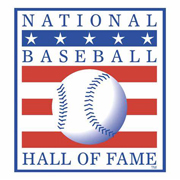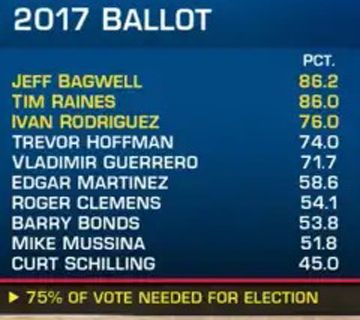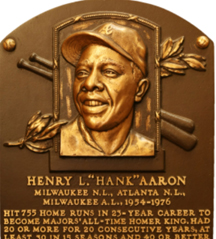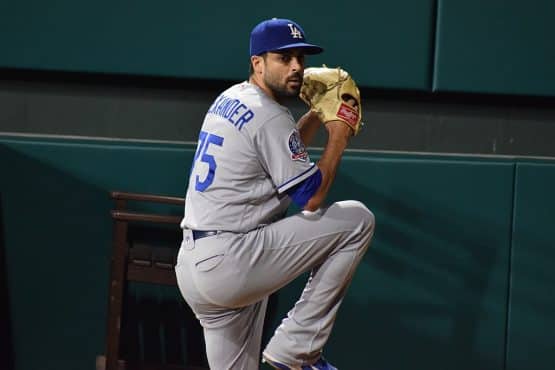As we rant, rave and gnash our teeth on the eve of the annual National Baseball Hall of Fame induction vote, I pause to celebrate the various debates and ongoing contention that now surround the process.
 Almost all of which is fueled by the perpetual question of whether Major League Baseball players who cheated by using performance enhancing drugs (PEDs) should be honored by admittance to the Hall of Fame.
Almost all of which is fueled by the perpetual question of whether Major League Baseball players who cheated by using performance enhancing drugs (PEDs) should be honored by admittance to the Hall of Fame.
For at least the past ten years it’s been a contentious conflict for those members of the Baseball Writers Association of America (BBWA) qualified to cast HOF votes, and for legions of baseball fans. And it’s been very good for baseball.
 Conflict is a key component in all professional sports, in virtually all forms of art, and is essential in getting the attention of mass media. Rather than plodding along the usual spectrum of its traditional and expected routines, of interest almost exclusively to dedicated fans, Major League Baseball has stumbled into a goldmine of relevancy and media coverage.
Conflict is a key component in all professional sports, in virtually all forms of art, and is essential in getting the attention of mass media. Rather than plodding along the usual spectrum of its traditional and expected routines, of interest almost exclusively to dedicated fans, Major League Baseball has stumbled into a goldmine of relevancy and media coverage.
You may say, “Hey, wait just a minute Mr. Baseball Expert” [which I never should have had printed on my business cards]. “This isn’t good, this is bad news for baseball. Drugs and cheating can only damage the reputation of America’s game!”
What any of this has to do with the National Football League, I have no idea. Anyway…
I hate to refer to cliches [my editor deducts 5% of my stipend each time I use one] but anything that gets serious sports page ink, endless online articles, numerous hits, infinite tweets, and acres of angry comments is gold.
And I’m sorry, you don’t get that level of attention by announcing a trade with a player to be named later, introducing the new 1st base coach of the Orioles, or broadcasting a Kansas City Royals game.
History is Good
MLB’s steroid era ran roughly from the late 1980s through the late 2000s. Although several players admitted to taking steroids in the late 1970s to mid-1980s, rampant use of PEDs in the sport began happening sometime in the mid-1990s.
A lot of smart baseball writers have an array of different (and legitimate) opinions about the Hall of Fame eligibility issue. As do several of the baseball columnists for the San Francisco Chronicle (some of whom actually believe that Tim Lincecum, Madison Bumgarner, and Will Clark should be enshrined along with Barry Bonds).
The two basic arguments for and against PED users to be elected to the Hall of Fame are really about the Hall itself.
1. Vote the PEDers In: The Baseball Hall of Fame is a Museum Not an Award
Those who excuse PED use insist that the HOF is a “museum”, not a “reward”, and therefore the only factors that should be considered for admission are a player’s performance and his cumulative numbers.
The sub-arguments supporting that contention are:
1) We’ll never know who was actually taking PEDs, so it’s unfair to punish those who were caught;
2) There are almost certainly players who used PEDs already in the HOF, so why start parsing that out now? and,
3) As to the “character” clause in the admittance criteria, we know the HOF already has any number of players who were racist, cheated in some way, or gambled on baseball, etc. So why start excluding certain players now?
2. Keep the PEDers Out: HOF Induction is a Specific “Honor” Bestowed on Players Based on their Performance and Character
1) The BBWA writers who vote each year are presenting an extra tribute to players. To do so for players who have cheated cheapens the Hall of Fame;
2) As to those already inducted who failed the character issue (a stated criteria voters are directed to consider), the idea is to right the wrongs of the past as we move ahead, not just close our eyes and say, “forget it, that’s always the way it’s been”;
3) And maybe one of the most compelling arguments against HOF induction for known PED users is that not all players used PEDs during the steroid era. Forget the totally unsubstantiated argument that “we know they all did it”.

The non-cheaters saw the PED users around them hit more home runs and pitch better– so the field wasn’t level when they played against each other. And now, after retirement, the PEDers get their juiced-up numbers used to get into the Hall, passing the players who didn’t cheat and didn’t artificially jack up their career numbers.
On a completely separate point, some suggest the Hall of Fame should use “asterisks” to lay blame or explain the darkside history of the game. That’s a subjective slippery slope that would end up with an absurd “Hall of Asterisks”. As happens with the rest of history, analysis and perspective are fodder for the research and dissection of historians.
And my own opinion about PED players and the HOF? All-in-all a fascinating dynamic to follow; let’s hope it continues to keep MLB relevant and in the news.
Add The Sports Daily to your Google News Feed!







